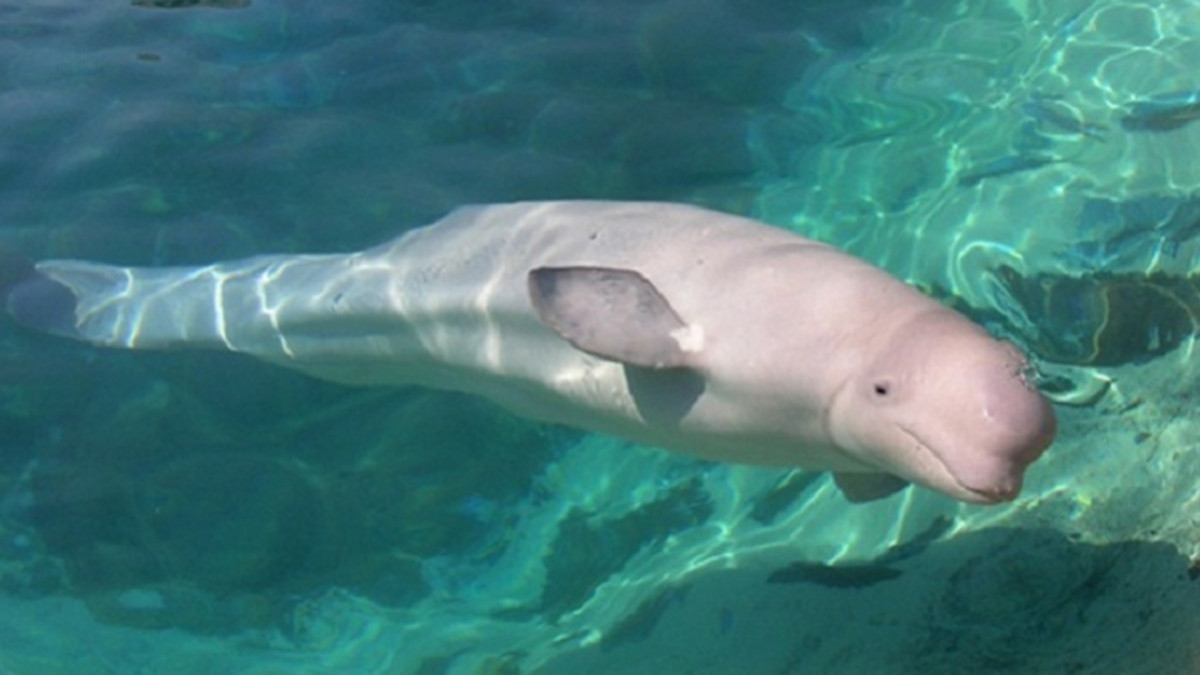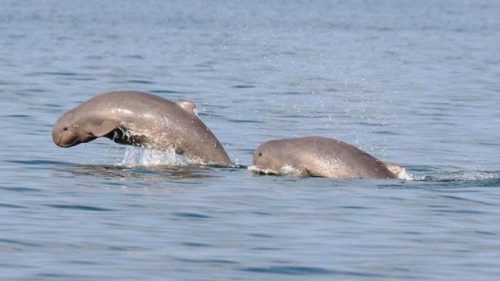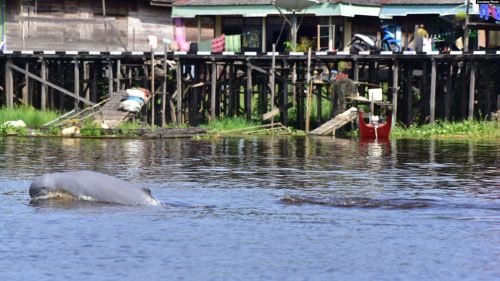Climate Change and Challenges to the Mahakam Porpoise (Pesut Mahakam) Population in the Estuary: Supporting Ecosystem Sustainability

Photo Credit : goodnewsfromindonesia.id
Estuary ecosystems, such as those found in the Mahakam River in East Kalimantan, Indonesia, are home to a variety of species that play a key role in maintaining environmental balance. One distinctive and important species in this ecosystem is the Mahakam porpoise or Pesut Mahakam (Orcaella brevirostris), a type of freshwater mammal that is endangered. However, ongoing climate change is having a serious impact on the sustainability of the Pesut Mahakam population, demanding effective conservation measures.
Climate Change Challenges for Pesut Mahakam
- Rising Water Temperature and Increasing Frequency of Extreme Heat : Pesut Mahakam are very sensitive to changes in water temperature. Significant temperature increases and extreme heat can affect their feeding, reproduction, and migration behaviors.
- Changes in Salinity and Seawater Intrusion : These changes will affect the availability of food and living conditions of Pesut Mahakam.
- Impact of Sea Level Rise : This impact can threaten spawning areas and give birth to Pesut Mahakam which are generally in shallow water.
- Increased Risk of Natural Disasters : Such intense storms and floods can threaten Pesut Mahakam and their habitat. Increasing the frequency and strength of natural disasters can increase the risk of Pesut populations.
Conservation and Recovery Measures
- Intensive Research and Monitoring :
-
Further research is needed to understand the behavior, migration, and habitat needs of Pesut Mahakam.
-
Regular monitoring of the population, health, and behavior of Pesut Mahakam to respond quickly to possible changes.

Photo Credit : Alimin/Dok Ketua Kelompok Sadar Wisata Desa Pela
-
- Habitat Management and Protection :
-
Implement habitat management strategies, including protection of critical areas for Pesut Mahakam, such as spawning and calving areas.
-
Increase public awareness to maintain the cleanliness and sustainability of the Mahakam estuary.

Photo Credit : Yayasan Konservasi RASI
-
- Inter-Agency and Community Collaboration :
-
Encourage collaboration between governments, NGOs, and local communities to design and implement sustainable conservation programs.
-
Involving the community in monitoring and preserving Pesut Mahakam to create a sense of shared responsibility.
-
Conclusion
The protection of the Pesut Mahakam population is not only important for the sustainability of this species but also for maintaining the biodiversity and functioning of the Mahakam estuary ecosystem as a whole. With the right conservation measures, we can work to protect Pesut Mahakam and ensure that estuary ecosystems remain balanced and sustainable amidst the evolving challenges of climate change.

